“No child should worry about missing school because they don’t have lunch. These little children deserve to be in school. They deserve to thrive.” —Bayush, Compassion Centre Director, Ethiopia
14 Dec, 2023
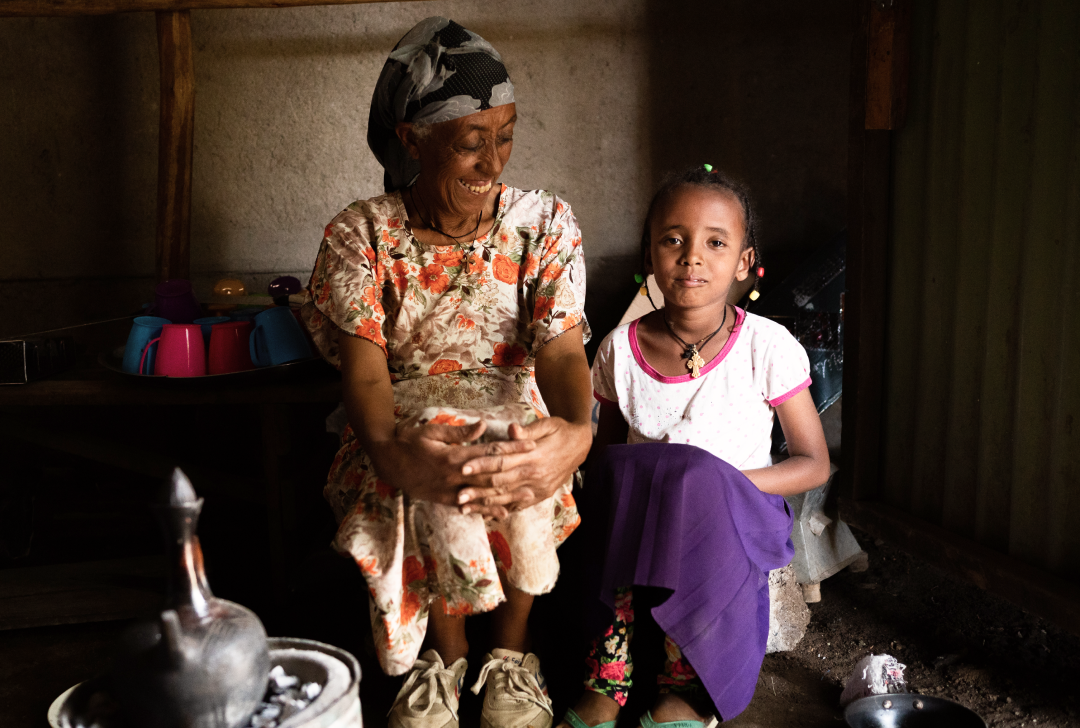
In a typical Australian home with school-aged children, mornings are always busy. Books, bags, shoes, lunches or canteen orders—there’s a lot to manage in the morning rush.
In Dera, Ethiopia, the school mornings are similar. Mothers rise early to prepare their children’s breakfast and pack their lunchboxes. Usually, the meal planning will start the day before. Like parents everywhere, Ethiopian caregivers aim to make sure their children have something to eat during the school day. Among them is Birtukan, a strong and resilient grandmother faced with the daily struggle of providing for seven-year-old Yeresen. Despite the challenges, Birtukan’s love for her granddaughter is evident as she navigates the difficulty of feeding her family. “I raise my granddaughter alone. I work hard to provide for her but recently it feels like my hands are tied. I save a little here and a little there, but it is never enough to consistently feed my family.
All over the world, nutrition plays a pivotal role in children’s development. Well-nourished, healthy children can focus and actively engage in their classes. They are also better able to play and interact with their friends. For school-aged children, having food to eat at school goes beyond the child’s nourishment—It affects their psychological wellbeing as well.
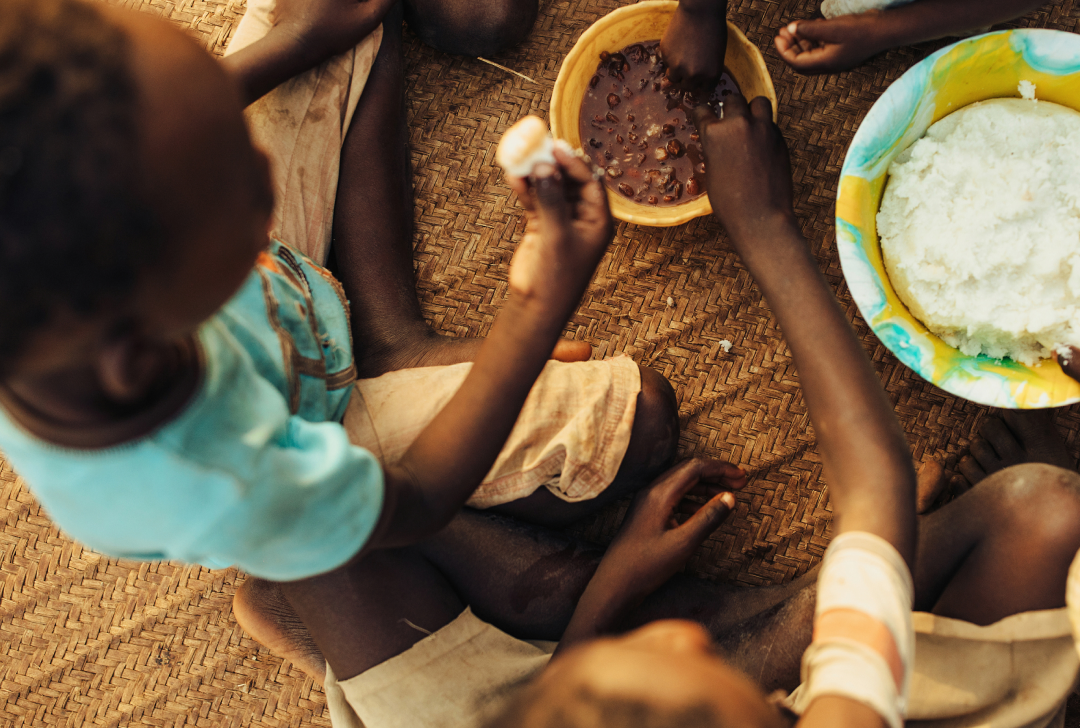
A widening hunger gap
The compounding impact of the global food crisis, especially conflict and inflation, has disrupted the way families traditionally care for their children. Over 238 million people around the world are facing acute food insecurity. This places children, considered societies most vulnerable, at the forefront of the struggle against food scarcity, with the impact flowing on to their education and overall development.
According to the World Food Program (WFP), food insecurity and malnutrition are major concerns for the country of Ethiopia, with an estimated 20.1 million people needing food support. At the Dera Full Gospel Church Centre, the food crisis means children missing out on education. Sometimes, children go to school with a small amount of food, though often they go with nothing at all.
“I have never seen a time as challenging as this in recent years,” says Birtukan, grandmother of Yeresen.
The gap between what families earn and what they can afford to buy is growing, and many families are being forced to make a choice to decide which meal to cut out of their day: breakfast, lunch or dinner?
Caregivers are struggling to keep packing lunch for their children. And, often, no lunchbox means no school for most of the children.
“What do I do if there is not enough food for everyone in the house? I wouldn’t want Yeresen to go to school with no food and sit while her friends are eating. It is a difficult choice but sometimes it is the only choice,” says Birtukan.
When teachers and centre staff noticed a pattern in declining school attendance, they knew they had to intervene, and quickly.
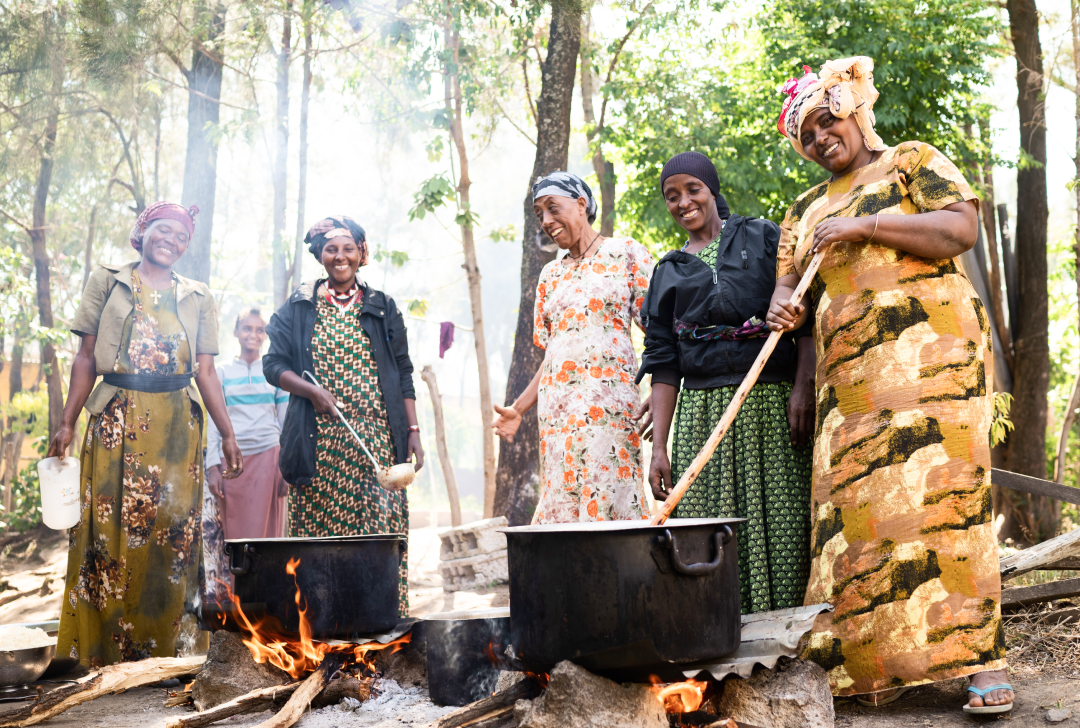
Bold steps that fill classrooms
After prayerful consideration and brainstorming with more than 100 caregivers, the local church knew they needed to act fast.
“No child should worry about missing school because they don’t have lunch. These little children deserve to be in school. They deserve to thrive,” says Centre Director Bayush.
With support from Compassion, the local church decided to step out in boldness, knowing God would continue to stir the hearts of generous people to give. They decided to pack lunches each morning for each of the more than 100 children at their centre.
Although feeding so many children three times a week is a huge responsibility, they knew it was a small price to pay to ensure those children would receive the education that is so key to establishing their futures. An unexpected and beautiful response from the mothers in the community came when they offered to help cook the meals as a show of their gratitude.
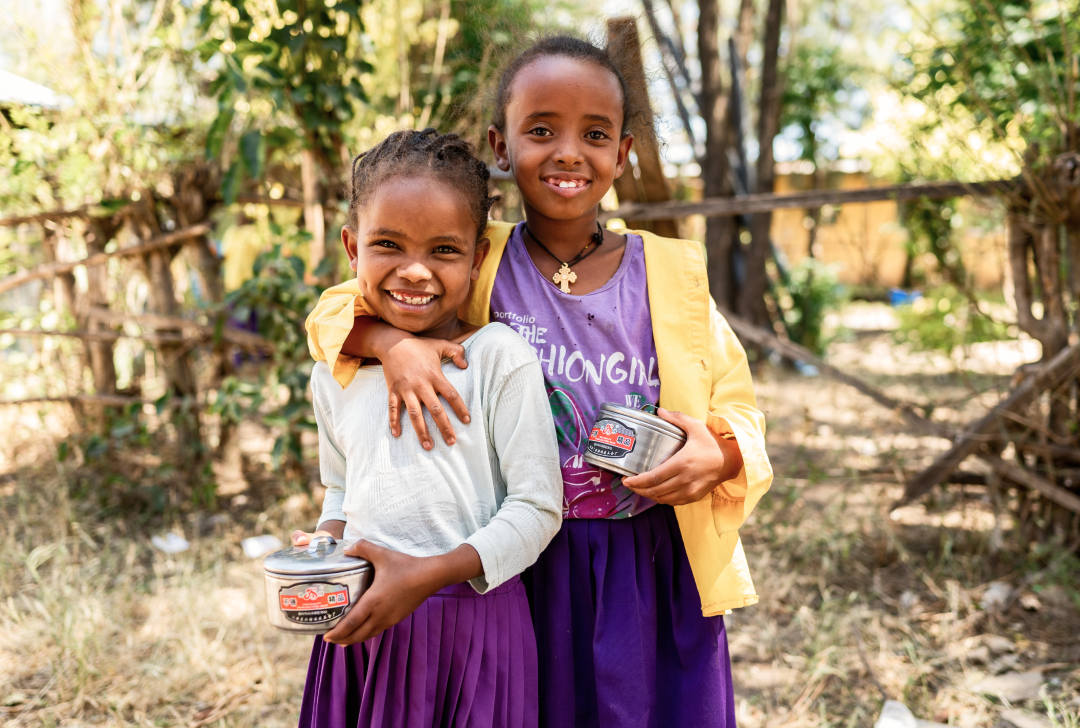
For Birtukan, the relief is tangible.
“A heavy burden lifted off my shoulders with the center’s intervention. It would have just been impossible to keep my granddaughter in school without this support,” she says.
The mothers are also overjoyed. They diligently arrive early to prepare food, filling the air with the sweet aroma of lovingly cooked meals. It is a gift for them to serve the children. Likewise, it is a blessing for the local church to witness. “Our reward is seeing the smiley faces of children when they run to the center for their lunchboxes,” says Bayush. “Children are happy and thriving. Their mind is no more fixed on whether or not they would be able to go to school. Their mind is now focused on learning. The mothers are also thankful. We are grateful for being able to do something to reverse the culminating effect of this crisis.”
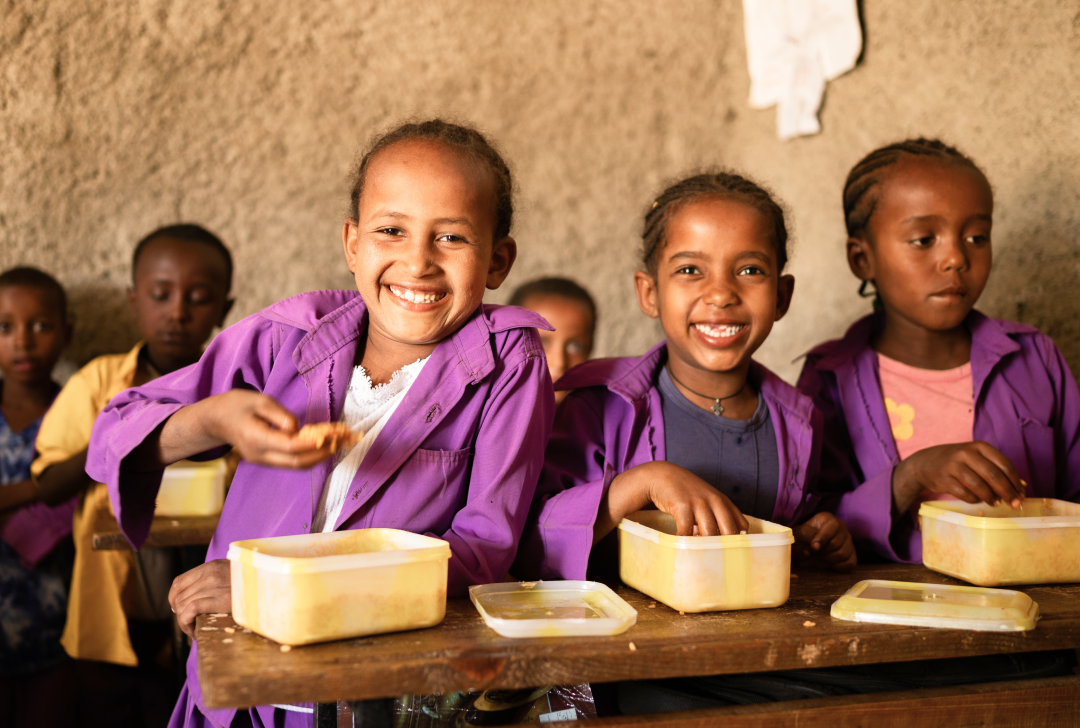
And the most wonderful outcome? The children are excited to go to school again! When the school bell rings, they run to line up and receive their lunchbox. Children like Yeresen are now better focused and thriving, thanks to the nourishing meals cooked for them by their own community.
“The lunch the centre packs for Yeresen didn’t only guarantee her not missing school, it also built her self-esteem as she confidently takes her lunchbox to her class to eat with her friends. The centre really proved that they cared,” says Birtukan.
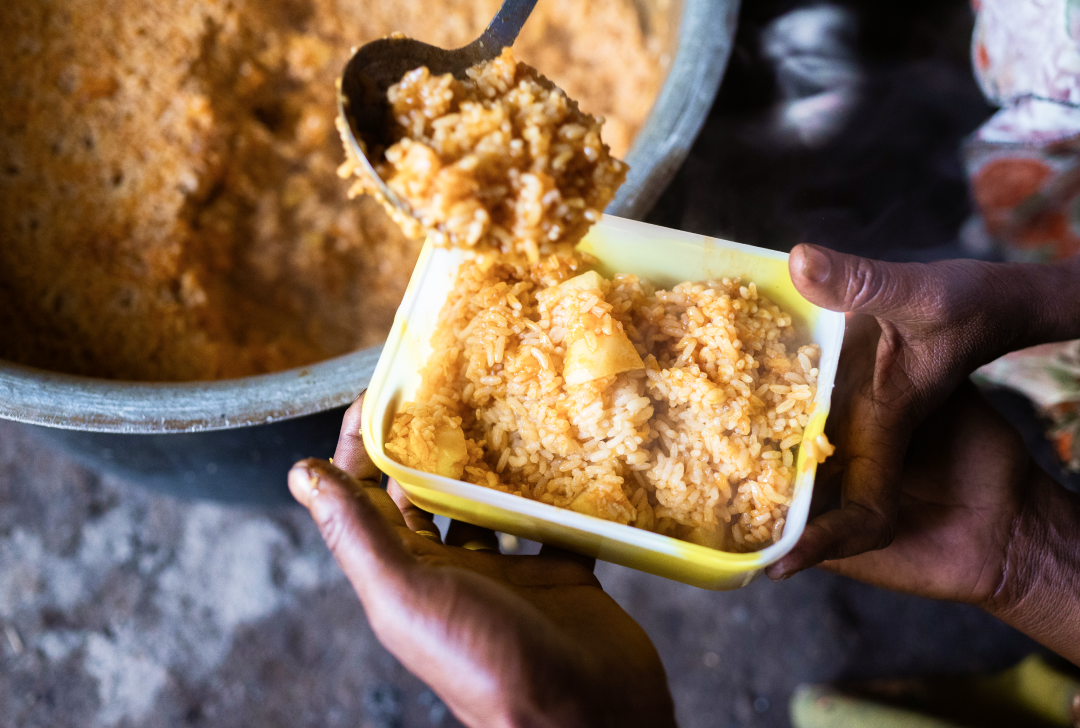
How is Compassion responding to the global food crisis?
Compassion is leading a local-first response to the global food crisis in Ethiopia and around the world through partnerships with over 8,500 local churches across four continents. Our church partners are responding in two ways:
Short-term aid
Meeting vulnerable families’ immediate nutritional needs through the delivery of food packages.
Long-term solutions
Equipping families with seeds, fertiliser, livestock and agricultural training to stop ongoing hunger.
The local church has decades of established community trust and is best positioned to assist in this crisis—it has been there before, will be there during and will remain long after the crisis.
Could you join the fight against hunger?
Your gift of $100 to will help equip the local church to distribute life-saving gifts of food for families facing unimaginable hunger. A crisis like this requires a global response—and you are an important part of the Compassion global neighbourhood.
Could you answer hunger with hope today?
Words by Stephanie Hope with field reporting by Tigist Gizachew.

